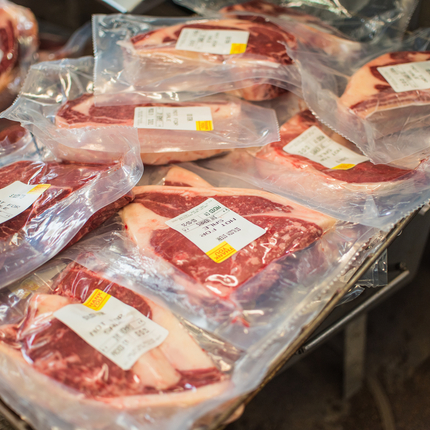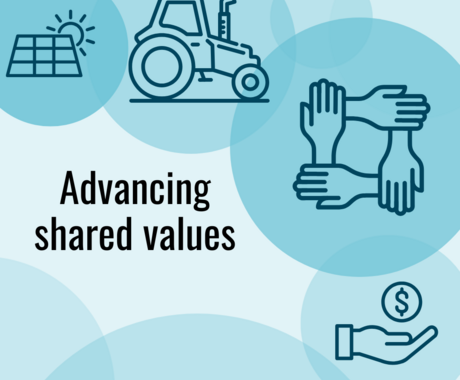Last night, I made lamb burgers, seasoned with garlic and topped with tomatoes from my garden. In my basement, across from canned peaches, I have a freezer filled with a whole lamb and part of a grass-fed cow.
Living near a local meat locker like the Oakland Meat Processing Plant, it’s easy to take access to quality meat from local growers for granted. It’s also easy to take for granted how vital that meat locker is to the local community.
Small meat lockers—independent businesses by definition—help anchor small town main streets. They provide jobs and a retail outlet for affordable and quality local food. Independent livestock farmers rely on them to process their animals into marketable products. And, as the pandemic illustrated, they’re a critical pillar of a resilient food system in times of crisis.
Small meat lockers saw a flood of demand when big slaughterhouses were bogged down under
COVID-19 worker health challenges. As the national meat supply chain faltered, small lockers kept serving local customers. However, local farmers who depend on small lockers suddenly found themselves waiting months for an open slaughter date.
Truth be told, the challenges for small meat lockers started long before the pandemic. Consolidation in livestock production, retiring owners, and aging facilities had already shuttered many small-town lockers. It is common for local farmers to drive an hour or more to find custom slaughter and processing.
Our local meat lockers need and deserve our support and assistance, including access to loan and grant capital to upgrade facilities, education for the next generation of owner-operators, technical assistance in generational business transfers, and champions in statehouses and Congress.
The Center for Rural Affairs is working with a coalition of partners to address each of these areas. In 2021, the Center worked with Nebraska legislators to craft and pass the Independent Processor Assistance Program. This year, we led an effort to win $10 million in funding for the program. The first round of grants totaling $4,914,247 has now gone out to 64 small Nebraska meat processors.
These awards are an investment in building the rural communities we want to live in.
The Center engaged in helping win a similar program in Iowa that includes an education program to teach butchery. Nationally, we supported USDA programs to provide grant dollars and technical assistance to small meat processors.
In addition, the Center has made two loans to local meat processors through our small business lending program. One loan helped to reopen a shuttered locker that also obtained a USDA inspection certification. A second loan helped upgrade equipment in a small multi-generation value-added meat processing business.
At least 10 states have used federal pandemic relief funding to invest in small meat lockers.
Additional states had some level of support in place for meat processors pre-pandemic.
We’re heartened that this sector is receiving long overdue public investment. We will continue to bring policy change, technical assistance, and lending support to the sector because we understand that local food processing infrastructure is a cornerstone of a vibrant and sustainable rural future.
Find more information and resources at cfra.org/resources-meat-processors.
Feature photo: Packaged meat at Oakland Meat Processing Plant in Oakland, Nebraska. | Photo by Kylie Kai





